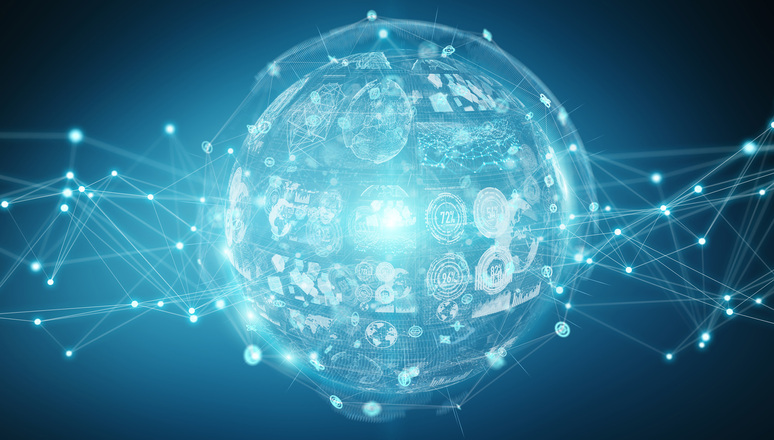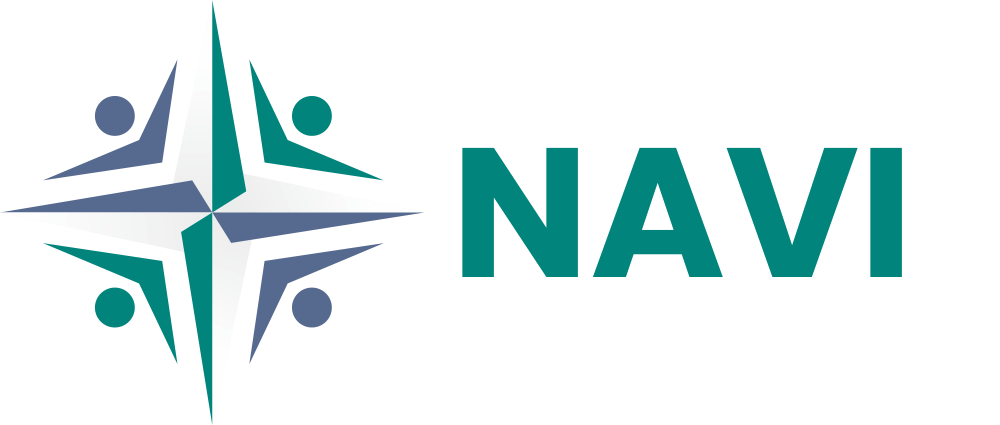Subscribe to NAVI Radar Weekly here
Focus Point: Security and Defense Policy- Russia-Ukraine War
Western weakness in Ukraine could provoke a far bigger war with Russia | Atlantic Council
Oleksiy Goncharenko | 07.04.2024

Does the West actually want Ukraine to defeat Russia? That is the question many in Kyiv are now asking amid continued signs of Western indecision as the biggest European invasion since World War II approaches its third summer with no end in sight.
The mounting sense of frustration among Ukrainians is easy to understand. Encouraged by delays in military aid for Ukraine, Russia has intensified the bombing of Ukraine’s civilian infrastructure over the past month, plunging entire cities into darkness and leaving millions without access to electricity, heating, water, or internet. Despite the looming prospect of a humanitarian catastrophe, the Western response has been notably lacking in urgency.
The global security architecture established over the past eighty years is clearly crumbling, and Ukraine is the front line in the fight to shape the future of international relations.
Fellow authoritarian powers like China and Iran are also watching the West’s weakness in Ukraine and are drawing the obvious conclusions. This is already helping to fuel insecurity in the Middle East and increasing the threat to Taiwan. The global security architecture established over the past eighty years is clearly crumbling, and Ukraine is the front line in the fight to shape the future of international relations.
The West’s fear of escalation is Vladimir Putin’s secret weapon. It has deterred Western leaders from arming Ukraine, and has prolonged the war by preventing the Ukrainian army from building on its early battlefield successes. Unless the West can overcome this self-defeating fear, it may ultimately lead to Russian victory. Read more…
Focus Point: Regional Security- Western Balkans
NATO| 08.04.2024

Secretary General Jens Stoltenberg welcomed the Chairman of the Presidency of Bosnia and Herzegovina, Denis Bećirović, to NATO Headquarters on Monday (8 April 2024) to discuss regional security issues and furthering the country’s partnership with NATO.
Secretary General Jens Stoltenberg “We stand ready to continue our political dialogue and strengthen our practical cooperation, for the benefit of our shared security.”
Mr Stoltenberg emphasised that NATO strongly supports Bosnia and Herzegovina’s sovereignty and territorial integrity. He outlined that NATO’s commitment to Bosnia and Herzegovina includes support to the country’s security reform efforts via the NATO Headquarters in Sarajevo, and strengthening capabilities through a Defence Capacity Building package. He added that NATO continues to support the EU-led Operation Althea to maintain a safe and secure environment, saying: “We stand ready to continue our political dialogue and strengthen our practical cooperation, for the benefit of our shared security.”
The Secretary General commended Bosnia and Herzegovina for its recent progress on the path toward European Union membership and welcomed efforts to upgrade the country’s armed forces to work even more closely with NATO. However, he expressed concern about secessionist policies and divisive rhetoric, describing this as “reckless and dangerous” and undermining hard-won progress. He stressed that “all political leaders must work together to preserve unity and safeguard national institutions”, adding that “this is key for peace and security in the country, and for stability in the Western Balkans.” Read more…
Focus Point: Regional Security- Indo-Pacific
Biden to warn Beijing over aggressive South China Sea tactics | Financial Times
Demetri Sevastopulo | 08.04.2024

President Joe Biden will warn China about its increasingly aggressive activity in the South China Sea this week during summits with Japanese Prime Minister Fumio Kishida and Philippine President Ferdinand Marcos Jr.
Biden will stress that the US-Philippine Mutual Defense Treaty applies to the Sierra Madre, said the officials, adding that he expressed “deep concern” when he spoke to President Xi Jinping on Monday.
In a joint statement, the defence ministers from the four countries made clear they supported the result of a 2016 arbitration case at The Hague which rejected Chinese claims of historic rights to most of the South China Sea within a demarcation called the “nine-dash line”. Read more…
More reading : WWIII could start over Philippines dispute in South China Sea, China ‘not respecting’ treaties, expert says by Fox News
Focus Point: Security and Defense Policy- The EU-Migration
Will it fail? EU migration reform faces tight vote as party divisions in Parliament deepen | Euronews
Jorge Liboreiro, Vincenzo Genovese and Maria Psara | 09.04.2024

The European Union’s make-or-break attempt to reform its migration and asylum policy faces a tight vote in the Parliament, as party divisions deepen.
The vote is scheduled to take place on Wednesday afternoon in a plenary session that will see MEPs go through a list of complex, interlinked pieces of legislation.
All eyes will be on the five laws that make up the so-called New Pact on Migration and Asylum, the comprehensive overhaul that seeks to turn the page on almost 10 years of go-it-alone reactions and instead establish common and predictable rules to manage the reception and relocation of asylum seekers.
First presented in September 2020, the New Pact has gone through many ups and downs, including periods of impasse that made it seem the legislation would never reach the finish line. Things changed last year as the issue returned to the top of the agenda, leading to a provisional agreement in December between the Parliament and the Council, despite their notable differences. Read more…
Focus Point: Security and Defense Policy- Emerging Threats and Global Risks
NATO Doesn’t Have Enough Troops | FP
Jack Detsch | Report | 10.04.2024

For most of its history, NATO has had a problem: not enough troops.
It was an issue for much of the Cold War, when NATO looked across the Warsaw Pact lines in East Germany and saw 6 million troops to their 5 million, and more divisions, tanks, combat aircraft, and submarines.
“NATO basically forgot about its military,”
Ever since then, the problem has only gotten worse. In the 1990s and 2000s, NATO nations shed troops and painted their green tanks in desert camouflage for 20 years of war in the Middle East. By 2014, when the Kremlin ordered troops into the Crimean Peninsula, there were only around 30,000 U.S. troops in Europe. Pentagon officials scrambled to figure out how to make it look to the Russians like there were 10 times that many.
“NATO basically forgot about its military,” said one senior NATO nation diplomat, speaking on condition of anonymity to talk about military planning. “It was absolutely insufficient for a big crisis.” Read more…
Focus Point: Regional Security- Transatlantic Security-Indo-Pacific
US, Japan military alliance to get biggest revamp since 1951 | DW
Julian Ryall | 11.04.2024

Washington and Tokyo plan to upgrade defense ties to maintain security and peace in the Asia-Pacific region. President Joe Biden and PM Fumio Kishida have said the alliance between the two countries is “unbreakable.”
The primary area of security cooperation
Ryo Hinata-Yamaguchi, an assistant professor of international relations at the University of Tokyo expects future strategy positions jointly released by Japan and the US to make “more explicit mention of the Indo-Pacific” as the primary area of security cooperation, a deliberate move by Tokyo to push the boundaries of its security concerns.
Ironing out the details of the agreement that comes out of Washington will take time, as will coordination and implementation, he said.
“I do not think whatever is agreed will lead to more confrontation with other countries in the region, as there is enough of that going on already,” he said. “Japan, the US and South Korea have all made it clear through their actions that they believe the consequences of inaction would be far greater than those from taking action.”
“China, North Korea and Russia will complain, of course, but they can be relied on to complain regardless of what Japan or the US do,” he added. “The key will be to get other nations in Southeast Asia, the island states of the Pacific and others, that are perhaps reluctant to antagonize China, to take a more overt security posture.” Read more…
Focus Point: Emerging Technologies & Data- Standards
NATO releases first international strategy on biotechnology and human enhancement Technologies | NATO
NATO| 12.04.2024

NATO Allies broke new ground by adopting the first international strategy to govern the responsible development and use of biotechnologies and human enhancement technologies at a meeting of Allied Defence Ministers in February. On Friday (12 April 2024), NATO released a public version of the strategy.
Faced with the exponential growth of biotech breakthroughs and their anticipated impact on defence and security, NATO has positioned itself as an ethical leader on biotech and human enhancement technologies by adopting an informed, value-based and gender-aware strategy.
The aim is to embrace these emerging solutions lawfully and responsibly, while developing a trusted relationship with innovators and the public and protecting the Alliance against misuse of these technologies by strategic competitors and potential adversaries.
Implementation of the strategy will be carried out in full respect of international law and existing protocols and practices, especially for bioethics. Application of biotech-related solutions will be in line with NATO’s defensive nature. It can range from the possible use of biosensors to enhance the detection of biological and chemical threats; to the development of health tech wearables; and other biomaterials that can help protect and heal servicemen and women.
Expert research on opportunities and challenges linked to such an application will start in the months to come.
Biotechnology and Human Enhancement technologies were identified as a priority emerging, disruptive technology in 2019. Read more…
Focus Point: Emerging Technologies & Data- Standards
Emerging and Disruptive Technologies | NATO
NATO | 12.04.2024

Technologies such as artificial intelligence (AI), autonomous systems and quantum technologies are changing the world and the way NATO operates. These and other emerging and disruptive technologies (EDTs) present both risks and opportunities for NATO and Allies. That’s why the Alliance is working with public and private sector partners, academia and civil society to develop and adopt new technologies, establish international principles of responsible use, and maintain NATO’s technological edge through innovation.
- Since its creation, NATO has stayed at the forefront of technology to ensure the defence of its member countries and the success of its operations.
- In recent years, NATO Allies have worked together to establish an overarching strategy on emerging and disruptive technologies. This strategy is helping to ensure that Allies are fostering the development and adoption of new technologies, while at the same time protecting themselves from the use of EDTs by potential adversaries and competitors.
- NATO is also developing more detailed policies and implementation plans focused on specific technological domains. Currently, this includes artificial intelligence (AI), autonomous systems, quantum technologies, biotechnologies and human enhancement, hypersonic systems, space, novel materials and manufacturing, energy and propulsion, and next-generation communications networks.
- NATO Allies have established new initiatives to support technological innovation throughout the Alliance, including the Defence Innovation Accelerator for the North Atlantic (DIANA) and the EUR 1 billion NATO Innovation Fund, the world’s first multi-sovereign venture capital fund.
NATO is engaging with other international organisations, including the European Union (EU) and the United Nations (UN), to address emerging and disruptive technologies. Read more…
Focus Point: Regional Security- Indo-Pacific
Why Germany’s Scholz is bowing to the Chinese dragon |Politico
Matthew Karnitschnig| 12.04.2024

Ignoring pressure from Washington, chancellor seeks Beijing’s embrace.
Scholz’s three-day visit to the Middle Kingdom, which begins Saturday, will be both his longest and most important foreign trip since he assumed office in late 2021. For the chancellor, beset by record-low approval ratings and a fractious coalition, the tour is an opportunity not to just prove he has global standing, but to show voters he’ll do whatever it takes to preserve Germany, Inc. — Zeitgeist be damned.
Unfortunately for Germany, it still needs China.
For German companies such as Siemens and Volkswagen, which began investing in China 40 years ago, the country is now a pillar of their global business. China accounts for about 50 percent of VW’s global car sales alone. Despite VW’s checkered history — the company was founded under the Nazis and relied on slave labor during World War II — it continues to operate a factory in Xinjiang, where the Uyghurs are being detained. Though the company has come under fire in Germany for not getting out, doing so would risk angering China’s leadership. Read more…
Focus Point: Regional Security- Middle East
Experts react: Iran just unleashed a major attack on Israel. What’s next? | Atlantic Council
Atlantic Council Experts | 13.04.2024

The war is out of the shadows. Using drones and missiles, Iran unleashed a large-scale attack on Israel tonight. The two countries have long been engaged in a “shadow war,” with Iran using its proxies and Israel undertaking targeted assassinations. Most recently, an Israeli strike in Syria killed several top commanders from Iran’s Islamic Revolutionary Guard Corps (IRGC), leading to Iran’s widely anticipated response. What will Israel do next? Has a broader regional war begun? What role will the United States play? Our experts weigh in below.
This post will be updated as the news continues to evolve and more expert responses come in.
Click to jump to an expert analysis:
Jonathan Panikoff: The Middle East is on the precipice of a regional war no one seems to want
Daniel E. Mouton: Israel is leaning on its US insurance policy
Gina Abercrombie-Winstanley: The result of Iran’s strike is two wins and a loss
Holly Dagres: Iranians react with apparently staged demonstrations—and apprehension
Danny Citrinowicz: Iran’s unprecedented attack may not lead to a regional war
Tuqa Nusairat: Iran’s response leaves Jordan in a precarious position
Thomas S. Warrick: The Iranian regime has just made a huge strategic misjudgment
Carmiel Arbit: What happens next will depend on three factors
Alex Plitsas: Iranian drones attacked Israel and Ukraine at the same time
Masoud Mostajabi: US, allies, and regional leaders will be motivated to sidestep expanding conflict
Focus Point: Regional Security- Middle East
Israel will ‘exact price from Iran… when time is right’, vows minister | Euronews
Joshua Askew and Tuba Altunkaya | 14.04.2024

Summary
- Iran launched an unprecedented attack on Israel overnight on Saturday, firing hundreds of drones and missiles
- Israel’s military says it intercepted 99% of Tehran’s strikes, with the help of its Western allies
- Israel has vowed to respond, though it is unclear when and how it will
- Iran’s attack was retaliation for a suspected Israeli strike on an Iranian consular building in Syria that killed 12 people, including two senior Iranian generals
- Iran has vowed to retaliate ‘with double intensity’ if Israel responds
- World leaders have condemned the attack and warned against further escalation
- The US is convening a meeting of G7 leaders to coordinate their response to the attack
- It was Iran’s first-ever direct attack on Israel
Focus Point: Security and Defense Policy- Middle East
Biden blasts ‘brazen attack’ and backs Israel’s security | BBC
Nadine Yousif |14.04.2024

US President Joe Biden has praised American forces who he said “helped Israel take down nearly all” the drones and missiles launched by Iran on Sunday.
In a statement, he said the US had moved aircraft and warships to the region before the unprecedented attack.
“I condemn these attacks in the strongest possible terms,” he added.
Mr Biden also said he plans to convene G7 leaders on Sunday “to co-ordinate a united diplomatic response to Iran’s brazen attack”.
He warned Iran against attacking any US assets, adding while Iran has not done so, America “remains vigilant to all threats”.
Iran’s delegation at the UN said Tehran earlier said “the matter can be deemed concluded” but warned it would strike again if there were reprisals by Israel or the US.
The Iranian Revolutionary Guard also said in a statement that “support or participation in attacking Iran’s interests will have a fierce response”.
Other nations, including the UK, France and Canada, have also condemned Iran and expressed support for Israel. Read more…
Focus Point: Security and Defense Policy- The EU-Migration
Asylum and migration: Civil Liberties committee endorses a new legal framework | European Parliament
European Parliament | Press Release| 14.04.2024

MEPs on Wednesday confirmed at the committee level the legislative texts on migration and asylum policy as agreed with EU member states.
- Member states can choose between hosting asylum applicants or making financial contributions or to provide operational support
- Improved identification at arrival, including facial image and fingerprints, covering children from the age of six
- Asylum claims to be examined more quickly
- Mandatory security and health checks for people entering the EU irregularly
- Addressing crisis situations and instrumentalisation of migrants and asylum applicants
- Updated reception and qualification standards
- New and voluntary EU framework to offer resettlement opportunities
Next steps
The texts await a formal adoption in an upcoming Parliament plenary session and final Council endorsement. Read more…
Thank you very much for reading.
The NAVI Research Institute is the research division of NATO Veterans Initiative - NAVI that provides a unique perspective to transatlantic leaders and societies on peace and security through the lens of NATO's founding principles of rule of law, democracy, human rights, and individual liberties. The NAVI Research Institute was officially established by the NAVI Board on July 16th, 2023.


